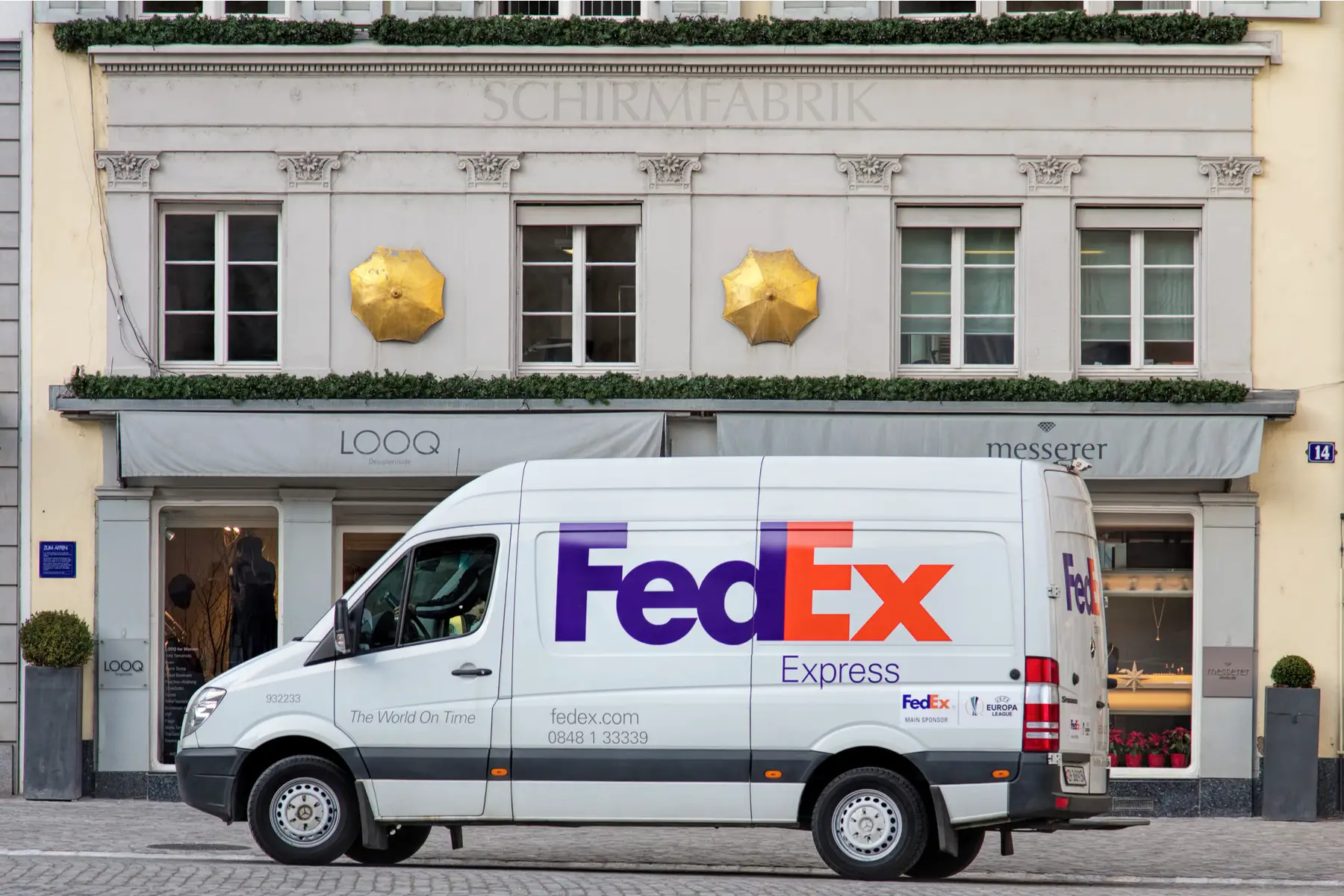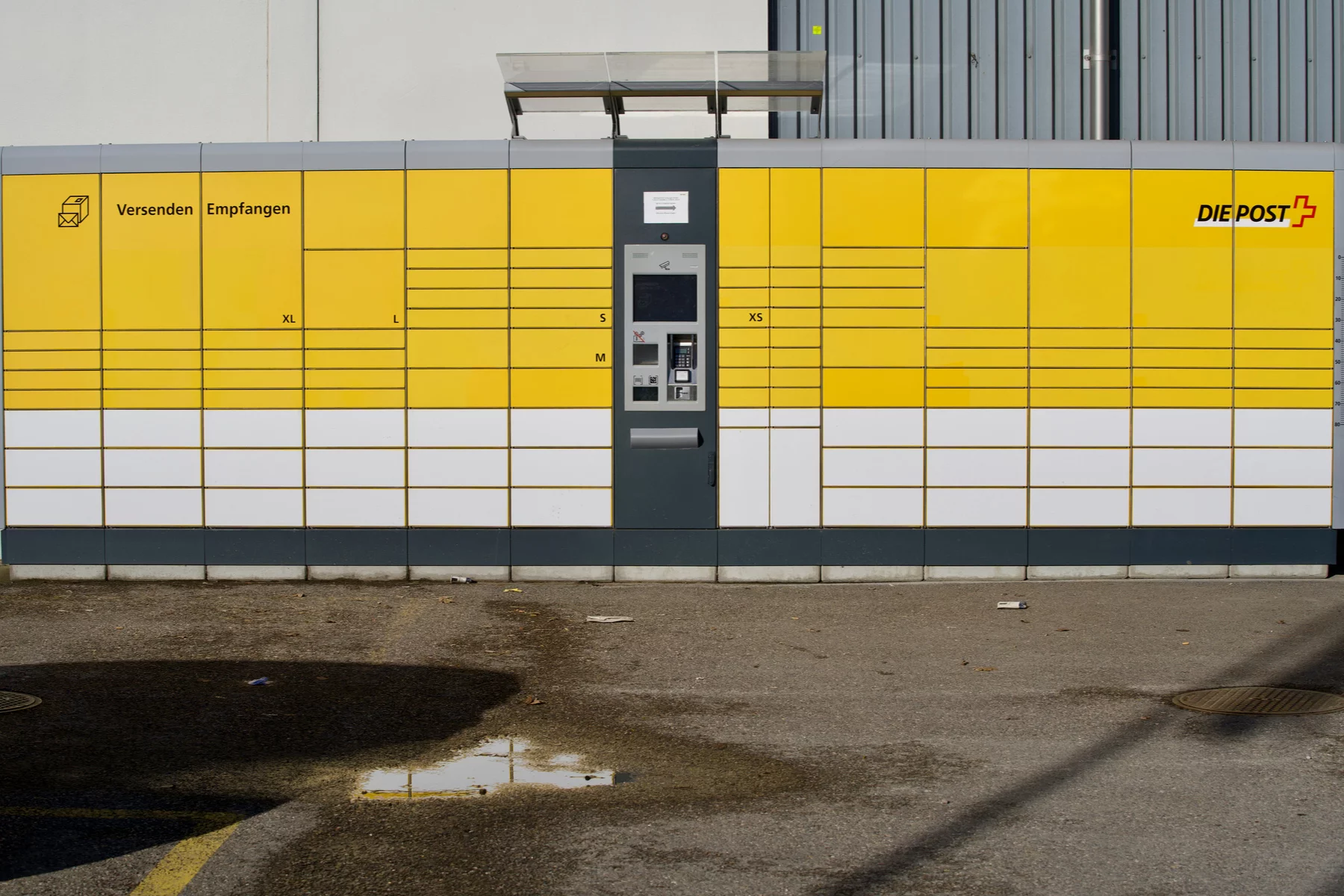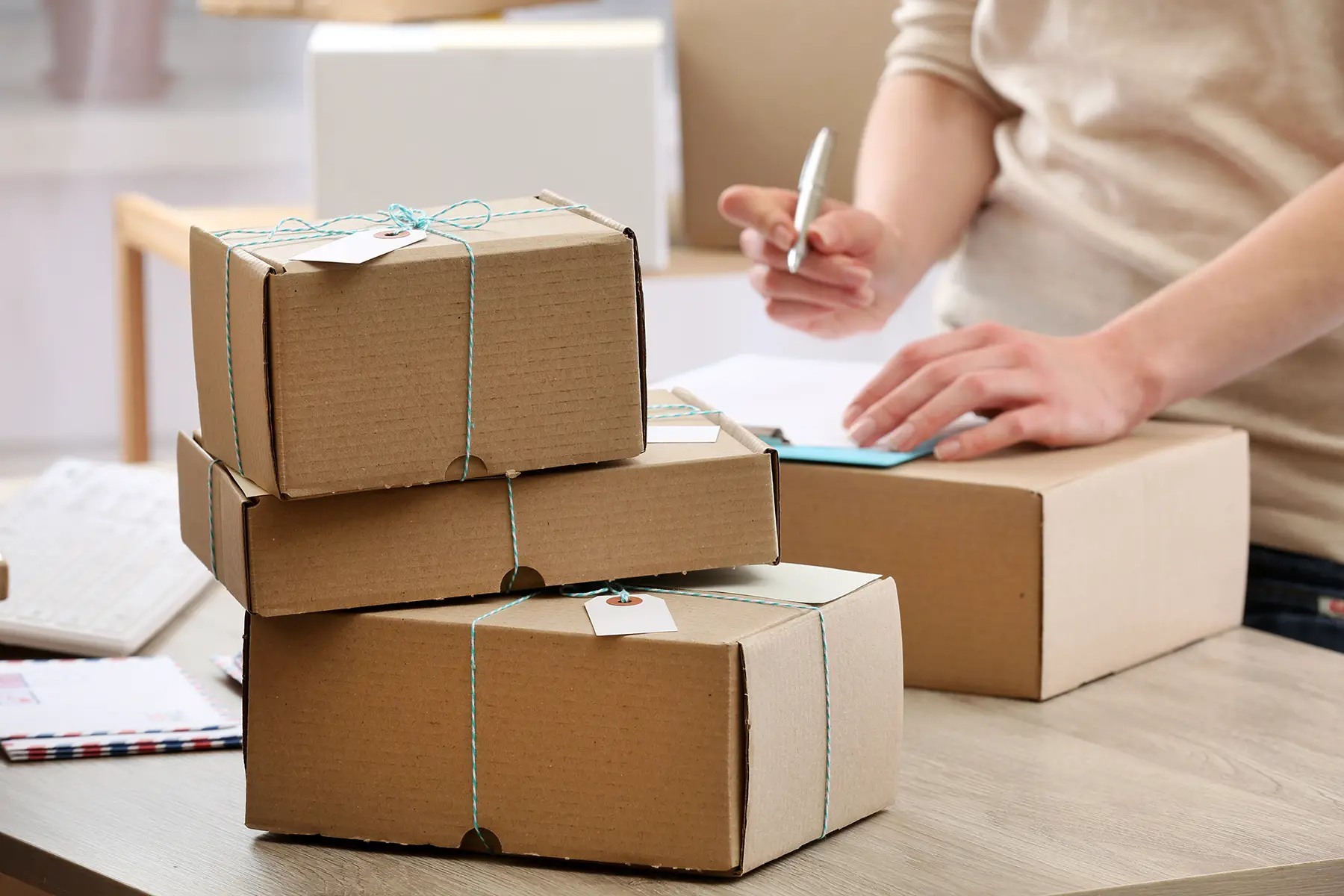
From sending parcels overseas to finding your nearest post box, we explain all you need to know about Switzerland’s postal service, La Poste Suisse.

By Marianna Cerini
Today’s postal services might be handling fewer letters and postcards, but they still play an important role in our lives. From sending parcels to paying bills, chances are you’re already quite familiar with your local post office. But what happens when you move to a country like Switzerland? How does the Swiss postal service operate? And what are the essential facts you need to know to ensure you use it well and make the most of it?
This helpful guide sets to answer all these questions and more. Spoiler alert: Switzerland has one highly efficient mail system. Although we wouldn’t expect anything less, of course. It includes the following information:
It's no secret that moving abroad can be stressful. Sirelo's team of removal advisers is here to help. They provide five free quotes from international shipping companies so you can find the best options at the best prices. Take the stress out of your relocation to Switzerland with Sirelo.
Established in 1849 with the centralization of the postal service regulated by Swiss federal law, the Swiss Post (or La Poste Suisse in French) has a rich and long history and is deeply rooted in the Swiss national identity. Thanks to its multi-use mandate, the postal agency offers Swiss citizens a convenient service for paying rent, bills, and wages. Furthermore, it has also helped to create a broad network of rural buses and has branched out into telecommunications and finance companies.

Today, La Poste Suisse is the country’s second largest employer and offers an array of services – both online and offline – that include the following:
While La Poste Suisse remains the chief way for Swiss people to send and receive parcels, it is by no means the only one. In fact, the country has several other companies that provide delivery services for parcels both domestically and internationally. These include DHL, FedEx, DPD, and ParcelABC.

A little fun fact: the global Universal Postal Union is actually based in Bern, Switzerland, where it was founded in 1874. This is a United Nations specialized agency and the postal sector’s primary forum for international cooperation.
There are many post offices located throughout Switzerland. However, many rural branches have closed in recent years. Swiss post offices are easily recognizable by their rectangular yellow sign with a cross delineated in red. Although opening hours may vary, most are open from Monday to Friday between 08:30 and 12:00, and then 13:30 to 18:30, and on Saturday between 08:30 and 12:00. The Swiss Post website provides a useful search option for both locations and opening hours to help you find the nearest branch.
That said, not everything requires a trip to the post office, and Swiss Post offers plenty of alternatives for collecting parcels, including the highly popular My Post 24 terminals. Spread across the country, these allow customers to send or receive letters and parcels without having to go to the post office and potentially face long queues.
As previously mentioned, Switzerland’s postal service also boasts a range of other services. For instance, it offers banking from financial services, but also e-voting and mobile phone subscriptions. Moreover, it also has a very useful app, PostApp, which one in three mobile users in the country use.

Top must-have Swiss apps
Overall, the agency has a strong digital presence, which is something that Switzerland residents have hugely appreciated during the coronavirus pandemic. Its most popular online service is My Consignments. The service allows customers to conveniently manage the receipt of incoming consignments online and decide where they would like them to be delivered.
Efficient and reliable, Swiss Post makes sending mail and parcels pretty easy, even for expats. Naturally, first-timers might want to swing by the post office to buy their postage and enquire about the wide range of delivery options on offer. However, once you’ve become familiar with how it works, you can do almost everything from the comfort of your own home.

Switzerland’s postal service lets you purchase postage stamps online, or even by SMS if you’re sending domestic A mail. Its website has clear step-by-step guidelines on everything from addressing, designing, and packaging to tracking and tracing. Additionally, it offers smart calculators that enable you to find out the price you will have to pay. Same-day deliveries are also available within the country and are well-explained on the website of Swiss Post’s subsidiary company, notime.
Besides the post office, there are plenty of places to pick up stamps in Switzerland. For instance, kiosks, newsagents, fuel stations, and stationery shops all stock them. However, you can also just purchase them on your phone if you’re after an around-the-clock service.

The Swiss Post online shop also offers plenty of options and many of the stamps on sale often feature commemorative designs which celebrate everything from Swiss architectural landmarks to nature and historical events.
In 1964, Swiss Post became the third postal service to introduce postcodes, after Germany (1941) and the United States (1963). The country’s postcodes have four digits and are assigned geographically, from west to east. They span nine postal districts and subdivided postal areas, with larger cities usually featuring postcodes that end with 00.

The 10 best cities in Switzerland for expats
Within the four digits, the first represents the district, the second the area, the third the PostBus route it falls into, and the fourth the post office number. If you’re not sure about a postcode in Switzerland, then you can use the Search for postcode service on the Swiss Post website to find it.
Besides regular, bright yellow postboxes, the Swiss Post relies heavily on the previously mentioned My Post 24 terminals, which are free to sign up to. To receive your consignment, all you have to do is provide the sender with the address of your preferred My Post 24 terminal and your User ID. Once you have done that, you can collect the parcel or the registered letter using your personal QR collection code. You may also be asked for a signature and to pay a fee.

To send an item, take it to a My Post 24 terminal near you, follow the instructions to create an address label with a barcode and attach it to the item, pay any shipping costs that may apply, and then place your consignment in the compartment that will open for you once everything is ready to go.
There are a variety of options for sending international mail from Switzerland. However, the most straightforward is to visit your local post office. Here, you’ll be able to send your letters and parcels overseas via three different services: PostPac International Economy (the most cost-effective), PostPac International Priority (for faster delivery), and Express (for urgent mailing).

You will need to create a waybill for all international consignments to specify the value of goods for customs declaration. Remember to fill it and print it out online, as Swiss Post adds a surcharge at the counter for parcels that don’t have it. You can find all the information you need on the postal agency website.

Setting up internet, TV, and home phone in Switzerland
Alternatively, an increasing number of other courier and logistics companies provide global delivery from Switzerland. Many also offer doorstep collection services. However, bear in mind that these services vary in cost, service, and speed. Some of these services include:
The best way to receive postal deliveries in Switzerland is to ensure that you are registered to the My consignments online service. Swiss Post will inform you in advance of any incoming mail or parcels so that you can choose an option for receipt based on your requirements.

And that’s not all. If you’re not often home, then you can also arrange to get your mail delivered to a designated neighbor. For consignments requiring your signature or confirmation of receipt, you can issue a one-off authorization for delivery through the My Consignments service, after logging in to Swiss Post’s Customer Center. Another smart option to receive mail in Switzerland is to use PickPost. This is a free-of-charge service that is available on selected online shops and allows you to pick a desired collection point for your shipments during the check-out process.
When expecting packages from overseas, most parcels will be delivered straight to your home. However, as the recipient of a shipment from abroad, you will be asked to pay VAT on the value of the goods (including shipping costs and services) and customs duties on the gross weight in Switzerland (with the exception of postcards and regular letters). Once you have paid these, you will likely receive your package the next working day.
Moving from Geneva to Zurich? Or leaving the big cities behind for the idyllic scenery of Ticino? Then you’ll want to use Swiss Post’s redirection services. This is the easiest way to change your mailing address, even if it’s just temporary.
Swiss Post has a wealth of offerings for Swiss-based businesses that need to stay in touch with contacts and clients. From franking plans and bulk mailing to digital commerce and marketing, you’ll find plenty of information on the company’s business page.
Whether you’re a small start-up or business owner, working remotely, or living in shared accommodation, PO boxes are ideal for keeping your address private. You can simply visit Swiss Post’s PO information page to find everything you need to know about setting one up in Switzerland.